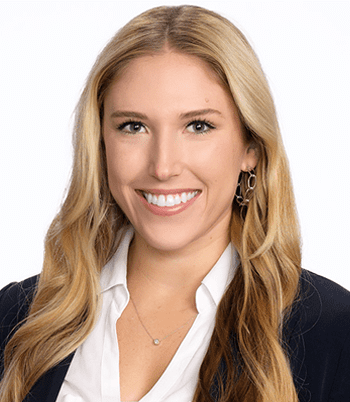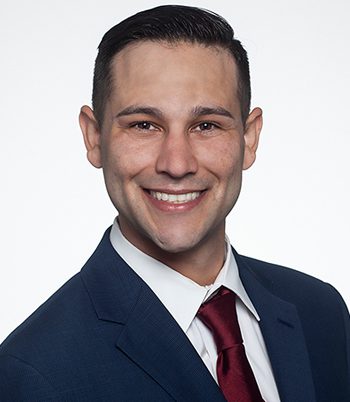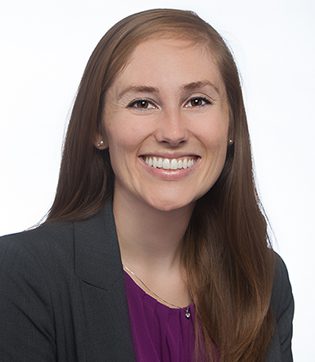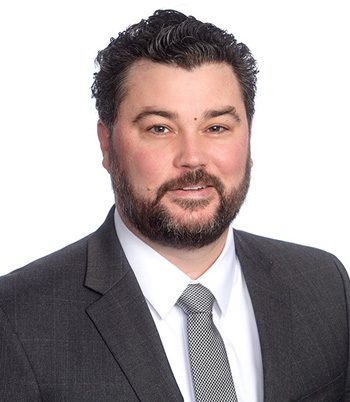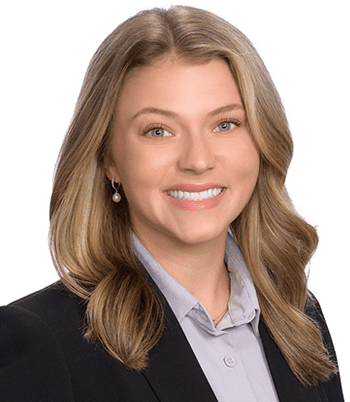Appellate & Writ Practice
Downey Brand’s appellate and writ practitioners handle appeals in both state and federal courts and in numerous practice areas from environmental to intellectual property, construction to healthcare, and employment to real estate.
We are equally adept at handling appeals where we have been extensively involved in the trial court proceedings as we are at stepping in as appellate counsel to defend judgments obtained or seek reversal of unjust results in the trial court. When appropriate, we match experts in the substantive law with appellate specialists to handle the appeal in the manner which gives our client the greatest probability to prevail.
Effective arguments in the trial court often do not translate to winning arguments on appeal. In the superior courts, the trier of fact (whether judge or jury) is looking for justice. On appeal, the court looks for legal error. An appellate lawyer brings a unique set of skills and a fresh perspective to your case.
Certified Appellate Specialist Jay-Allen Eisen
In 2017 Downey Brand expanded its appellate expertise by bringing in highly-regarded appellate specialist Jay-Allen Eisen. Certified by the State Bar of California as an Appellate Law Specialist, Eisen has been counsel in more than 300 appeals and appellate writs, and his name appears on over 120 published decisions. He has handled cases in every District Court of Appeal in the state, the California Supreme Court, and the Ninth Circuit Court of Appeals. Jay-Allen Eisen has been shaping the law in California through the appellate process for almost fifty years, and his presence at Downey Brand offers clients the highest level of appellate law practice.
Civil Appeals
Appellate procedure consists of the rules and practices by which appellate courts review trial court judgments and orders. Appellate review performs several functions, including the correction of errors committed by the trial court, development of the law and precedent to be followed and anticipated in future disputes, and the pursuit of justice. In reviewing errors of the lower court, the errors focused on are of a legal nature, appellate courts will usually not disturb factual findings.
Several issues are foremost in appeals, such as what judgments are appealable, how appeals are brought before the court, what kind of argument the appealing party, appellant, will have to make to convince the appellate court to reverse the lower court (e.g., a showing that there was no “substantial evidence” to support the judgment, “abuse of discretion,” “clear error,” etc.), and what procedures parties must follow.
Writ Law
The development of English Common Law relied on the courts to issue orders known as “writs” that allowed individuals to proceed with a legal action. Over time the courts also used writs to direct lower courts or tribunals, governmental officials, sheriffs, and attorneys to perform, or to refrain from performing, certain actions. In modern law, courts primarily use writs to grant extraordinary relief—that is, relief that there is no other adequate means of obtaining. A trial court’s rulings before final judgment generally cannot be appealed. An appellate court may review the ruling in a writ proceeding. Most other common-law writs were discarded in U.S. law, as the courts moved to simpler and more general methods of litigating civil actions.
A writ is obtained by petitioning the court. Appellate lawyers handle writ petitions in both the superior courts and the appellate courts on a variety of issues, including land use, professional license discipline, and other actions of government agencies. Most trial court rulings before the entry of a final judgment aren’t appealable. A writ may also be available to obtain immediate appellate review of such interlocutory rulings
Motion Law
A motion asks a court for an order during the course of a case. There are many types of motions. Some may be made orally in open court, such a motion during trial to direct a witness to answer a question. The court will usually rule on these motions immediately. But most motions (especially on issues that could decide the entire case) must be written, filed with the court and served on other parties in the case well before the court hears oral arguments. As a general rule, and depending on the jurisdiction and type of motion, the moving party has to file a motion and give the opposing party notice 20-30 days before the hearing. Motion papers will include a memorandum of points and authorities, which is the written legal argument. If it is necessary to establish facts that give rise to the motion, evidence is presented through affidavits or declarations under penalty of perjury; there is usually no oral testimony.
A party who opposes a motion has the opportunity to file and serve opposition papers. Most jurisdictions also allow the moving party to file reply papers rebutting the points made in the opposition. The court hears oral argument on the motion after all of the papers from each side have been filed and served.
Customs vary widely as to whether the court will hear oral argument. In some courts, oral argument is optional with the judge. In others, the attorneys have the right to appear before the judge to argue their cases. In some cases, the court may order the attorneys to appear. Some courts issue tentative rulings after which a party may request oral argument. Depending upon the type of motion and the jurisdiction, in a court that does hear oral argument, the court may simply issue an oral decision from the bench and may order the attorney for the party that prevailed on the motion to draft an order for the court’s signature. Or, instead of ruling immediately, the court may take the matter under submission and rule on the motion after considering it more fully. The court’s decision may be a simple statement that the motion is granted or denied. The court may draft a written decision and order explaining the factual and legal basis for its ruling. In some cases, the court may simply fill out a standard court form with checkboxes for different outcomes.
Motions are similar to appeals in an important respect. Appeals are presented on written briefs that set out the parties’ legal arguments as to why a trial court’s judgment or order should be reversed or upheld. Likewise, a memorandum of points and authorities in support of a motion sets out legal arguments why the court should grant or deny the motion.
Known for their ability to persuasively write and orally advocate their client’s position, our appellate lawyers are often frequently on board in trial proceedings to brief and argue everything from routine discovery motions to dispositive motions such as demurrers and summary judgment motions, and often in limine motions where specific evidentiary issues may decide the outcome at trial.
Substantive Areas
Downey Brand offers appellate expertise from lawyers who have prosecuted and defended civil appeals, writs, and motions in a broad range of areas, including:
- Administrative law
- Amicus advocacy
- Business litigation
- Civil procedure issues
- Civil rights and constitutional law
- Construction law
- Employment law
- Environmental law
- Family law
- Land Use
- Personal injury
- Probate law
- Products liability
- Professional licensing
- Real estate litigation
Selected Experience
Selected Experience
- After obtaining judgment in construction defect case against builder of client’s home at the conclusion of seven day jury trial, Downey Brand not only successfully defended the client’s judgment from attack by builder on appeal, but also obtained rarely-awarded sanctions against builder and its attorney for prosecuting a frivolous appeal.
- In litigation involving significant corporate practice of medicine, anti-trust, and Section 17200 claims against major Northern California hospital, Downey Brand obtained reversal from the California Court of Appeal, Third Appellate District of summary judgment entered against its client, a medical group practicing at the hospital. Remand of the action back to Butte County Superior Court for a jury trial caused an almost immediate, favorable settlement for Downey Brand’s client.
- After defeating a motion to dismiss brought by union seeking to preclude Downey Brand’s client from going forward with his claims for defamation and intentional infliction of emotional distress based on union’s distribution of flyers in client’s neighborhood, Downey Brand successfully defeated union’s appeal. In a published opinion, Third District Court of Appeal agreed with Downey Brand’s argument that union’s distribution of flyers was not constitutionally-protected activity, and upheld trial court’s denial of union’s motion to dismiss client’s claims under California’s Strategic Litigation Against Public Participation (“anti-SLAPP”) statute. Downey Brand’s victory in the appellate court allowed client to go forward on the merits of his claims against the union. Price v. OE3 195 Cal.App.4th 962 (2011).
- After obtaining judgment in construction defect case against builder of client’s home at the conclusion of seven day jury trial, Downey Brand not only successfully defended the client’s judgment from attack by builder on appeal, but also obtained rarely-awarded sanctions against builder and its attorney for prosecuting a frivolous appeal.
- In litigation involving significant corporate practice of medicine, anti-trust, and Section 17200 claims against major Northern California hospital, Downey Brand obtained reversal from the California Court of Appeal, Third Appellate District of summary judgment entered against its client, a medical group practicing at the hospital. Remand of the action back to Butte County Superior Court for a jury trial caused an almost immediate, favorable settlement for Downey Brand’s client.
- As litigation counsel for property developer sued by adjoining landowner for actions related to pursuit of development entitlements from County of Placer, Downey Brand obtained dismissal of suit in its entirety at outset of case under California’s Strategic Litigation Against Public Participation (“anti-SLAPP”) statute, based on client’s constitutional free speech and public participation rights. Dismissal was affirmed by the California Court of Appeal, Third Appellate District.
- After obtaining dismissal of claims based on alleged groundwater contamination caused by client’s dry cleaning operations, Downey Brand represented client in five separate appeals brought by the City of Lodi, in both the Third District Court of Appeal and Ninth Circuit. The state and federal appellate courts struck down several provisions of ordinance enacted by the City which sought to change liability standards, burdens of proof and enforcement authority allowed by current state and federal hazardous waste laws including the California Hazardous Substances Account Act and the federal Comprehensive Environmental Response, Compensation and Liability Act (CERCLA).
Meghan M. Baker
Partner
Sacramento 916.520.5510
Bradley C. Carroll
Bradley C. Carroll
Partner

Known for his client-centric approach and effective, efficient resolution skills, Bradley Carroll is a seasoned litigator who focuses on complex business disputes in trial courts and on appeal. His combined experience as an appellate staff attorney and trial attorney allows Bradley to successfully guide clients through arduous, high-stakes business disputes and litigation.
Sacramento 916.520.5299
Partner
Sacramento 916.520.5299
Cassandra M. Ferrannini
Partner
Sacramento 916.520.5387
Janlynn Robinson Fleener
Managing Partner Partner
Sacramento 916.520.5227
Thomas A. Gherini
Thomas A. Gherini
Associate

Thomas Gherini, a Sacramento native and litigation associate, knows that ‘good enough’ is never enough. Fueled by an innate competitiveness, Tom found his calling in civil litigation, where he is unwaveringly committed to delivering for his clients, regardless of the complexity of the challenge.
Sacramento 916.520.5244
Associate
Sacramento 916.520.5244
Amy R. Higuera
Partner
San Francisco 415.848.4836
Tyler J. Horn
Senior Associate
Stockton 209.472.3978
Sacramento 916.444.1000
Christopher Miles Kolkey
Christopher Miles Kolkey
Partner
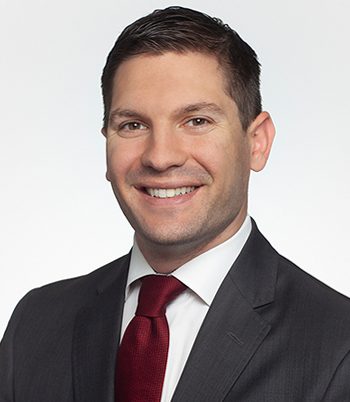
Clients rely on Christopher Kolkey to navigate them through the complex channels of litigation and to be a passionate advocate for them. Christopher takes a client-tailored approach to litigation, assessing the needs and goals of each case as a key driver in litigation strategy.
Sacramento 916.520.5320
Partner
Sacramento 916.520.5320
Michael J. Laino
Michael J. Laino
Senior Associate
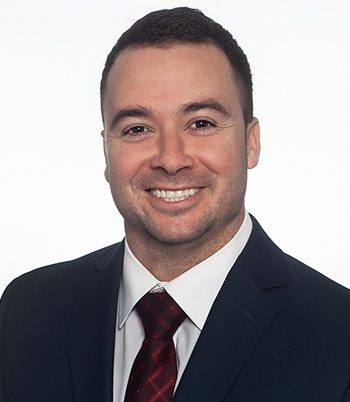
Since joining Downey Brand in 2019, Michael Laino has represented businesses and individual clients in a wide arrange of civil litigation matters, including partnership and shareholder disputes, construction and product defect litigation, wildfire liability, adversary proceedings in bankruptcy cases, financial security matters, and general real estate and contractual litigation.
Sacramento 916.520.5360
Senior Associate
Sacramento 916.520.5360
Christian L. Marsh
Christian L. Marsh
Partner / Executive Committee Member
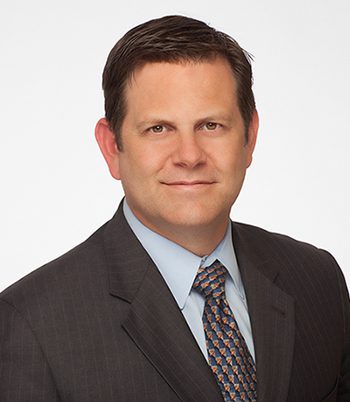
Public agencies and private companies turn to Christian Marsh for advice on regulatory and land use entitlement issues governing real estate developments, ground and surface water supply projects, renewable and non-renewable energy facilities, mining operations and processing plants, and port and waterfront developments.
San Francisco 415.848.4830
Partner
San Francisco 415.848.4830
Sean G. McKissick
Sean G. McKissick
Partner
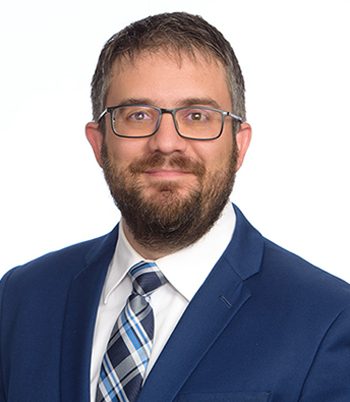
Sean McKissick provides strong and effective legal assistance throughout all stages of trust and estate disputes. Sean has extensive experience across a wide variety of litigation areas and industries in addition to trust and estate work, including healthcare, real estate, civil rights, and white-collar criminal defense.
Sacramento 916.520.5262
Partner
Sacramento 916.520.5262
Jennifer L. Williams
Jennifer L. Williams
Counsel

Regional public entities, businesses, sole proprietorships, and individuals have benefited from Jenny Williams's legal counsel. In today's challenging economic climate, an increase in case filings have reduced the court's availability to hear oral arguments and resulted in significant delays in obtaining trial dates.
Stockton 209.472.3918
Counsel
Stockton 209.472.3918
Sacramento 916.444.1000
Announcements
24 related items-
December 26, 2024Thomas Gherini Joins Sacramento Choral Society & Orchestra’s Board of Directors
-
November 7, 2024Downey Brand Ranked Nationally and Regionally in 2025 Best Law Firms®
-
November 2, 2023Downey Brand Ranked Nationally and Regionally in 2024 Best Law Firms®
-
June 8, 2023Chambers USA 2023 Recognizes Downey Brand Attorneys and its Energy and Environmental Practice Groups
-
November 5, 2022Downey Brand Ranked Nationally and Regionally in 2023 “Best Law Firms” by U.S. News – Best Lawyers®
-
June 16, 2022Chambers USA 2022 Recognizes Downey Brand’s Environmental and Energy Practice Groups and Four of its Attorneys
-
March 15, 2022Alexandra LaFountain Selected to Leadership Sacramento Class of 2022
-
November 5, 2021Downey Brand Ranked Nationally and Regionally in 2022 “Best Law Firms” by U.S. News – Best Lawyers®
-
April 27, 2021Downey Brand Welcomes Sean McKissick to its Litigation Practice in Sacramento
-
April 1, 2021Downey Brand Welcomes Samuel Micon to its Employment Practice in Sacramento
-
March 5, 2021Christopher Kolkey Selected to Leadership Sacramento Class of 2021
-
November 9, 2020Downey Brand Ranked Nationally and Regionally in 2021 “Best Law Firms” by U.S. News – Best Lawyers®
-
January 15, 2020Downey Brand Names Two New Partners
-
November 4, 2019Downey Brand Ranked Nationally and Regionally in 2020 “Best Law Firms” by U.S. News – Best Lawyers®
-
June 7, 2019Downey Brand Welcomes New Litigation Attorney Michael J. Laino
-
December 12, 2018Downey Brand Welcomes Two New Associates to its Sacramento Office
-
November 12, 2018Downey Brand Ranked Nationally and Regionally in “Best Law Firms” 2019 by U.S. News – Best Lawyers®
-
October 15, 2018Natalie Kirkish and Benjamin Lee Join Downey Brand’s Natural Resource Team
-
September 17, 2018Downey Brand Welcomes Litigator Christopher Kolkey to its Sacramento Office
-
March 7, 2018Jay-Allen Eisen Receives the 2017 Anne K. Meline Award
-
December 6, 2017Prominent Appellate Attorney Jay-Allen Eisen to Work With Downey Brand
-
March 10, 2017Annie Amaral Recognized as Young Leader by Comstock’s Magazine
-
March 6, 2017William R. Warne Assumes Chairmanship at Downey Brand LLP
-
November 2, 2015Veteran Environmental Attorneys Kathryn Oehlschlager and Donald Sobelman Join Downey Brand
Firm Furthers its Bay Area Commitment with Expansion of San Francisco Office
In the News
1 related items-
December 5, 2017Eisen Joins Downey Brand as the Firm Looks to Build Out Appellate Practice
Sacramento Business Journal
Legal Alerts
1 related items-
March 12, 2020Fifth Appellate District Invalidates Kern County Oil and Gas Ordinance
Environmental Law
Publications
2 related items-
April 18, 2022 (Revised)Summary of California Supreme Court and Court of Appeal Opinions Reviewing Decisions of the California Public Utilities Commission
Provided by Downey Brand’s Public Utility Regulation Practice -
September 2019Big Changes in California Sexual Harassment Law
California Grocer, Issue 4









